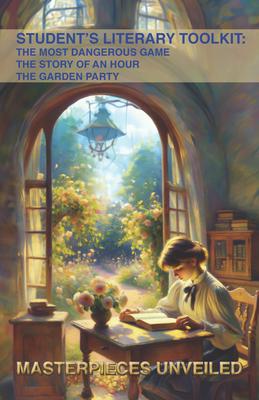Engage in a deeper analysis of literature with the Student's Literary Toolkit. This comprehensive resource focuses on three iconic short stories (fully annotated): The Most Dangerous Game by Richard Connell, The Story of an Hour by Kate Chopin, and The Garden Party by Katherine Mansfield, serving as a bridge connecting students with the intricate worlds of these narratives, fostering a deeper understanding and appreciation of literary art.
Through a series of thought-provoking discussion questions, vocabulary activities, and semantic mapping exercises, this book provides a structured approach to literary analysis, equipping students with essential tools they can apply to any text.
Section One guides students through each story with discussion activities, vocabulary exercises, and analytical tools like semantic mapping to unlock deeper meaning. They'll delve into character motivations, thematic exploration, and hone their writing skills with targeted assignments.
Section Two offers invaluable "Text Insights" to enrich student understanding. Historical and thematic context sections provide background knowledge, while character insights illuminate the characters' complexities. A sample essay for each story showcases effective analysis, offering students a valuable model for their own writing.
This academician-friendly resource empowers educators to foster a love for literature and equip students with the critical thinking skills necessary for success in English Language Arts and beyond.
This title is available in two versions. A workbook, designed to facilitate an interactive and immersive learning experience, allowing students to actively engage with the literary content within the workbook itself and a traditional text book format, where students are expected to use an external notebook to respond to questions and complete activities. In the workbook, students can directly annotate, answer questions, and participate in activities on the pages, fostering a hands-on approach to learning. This method encourages immediate reflection and interaction with the text, making the learning process more engaging and dynamic. While both the workbook and the regular book contain similar educational content, including discussion questions and analytical activities, the key distinction lies in the workbook's design that accommodates and encourages students' responses and engagement directly within its pages, enhancing their learning experience by making it more practical and integrated.This is the traditional text book version.
